Tag Archives: magnuson-stevens-act
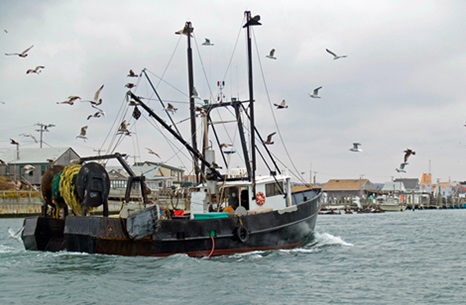
OPINION: Reel them in – Regional fisheries councils violate constitution and hurt accountability
That is the position in which many fishermen find themselves. They share a desire for sustainable fisheries and support some of the federal efforts at regulation. But they oppose certain federal water catch limits and allocations between commercial and recreation sectors that are set by regional fishery management councils made up of members who aren’t accountable through elections or to elected officials. Pacific Legal Foundation is representing these individuals and small businesses in courts around the country, making what we think is a simple argument based on the text and purpose of the Constitution. Specifically, that it requires that executive branch officials with significant authority be appointed by the president or a member of his cabinet. more, >>CLICK TO READ<< 06:40

Cod: The New England Council has proposed a plan to restore cod by 2033
What that will mean is our fishing fleet would have to reduce their catch by whatever the council thinks will be helpful. Over the years NOAA has made reductions on cod and other species, based on their studies and science. Under law, they do not have to compare their findings. We need to update the Magnuson–Stevens Act that would require them to compare data before making restrictions on species of fish. Put this aside, if we want to bring back the cod, no fishing vessel can land cod over the next ten years. Great! So be it. Pay our fisherman to not catch cod. Farmers have a Farm Bill and pay farmers not to grow certain crops. So why can’t our government create a Fish Bill to do the same for the U.S. fishing industry? This could be paid for by increasing the duty on imported fish. This is a Win-Win solution. Sam Parisi, Gloucester, Mass. 19:27
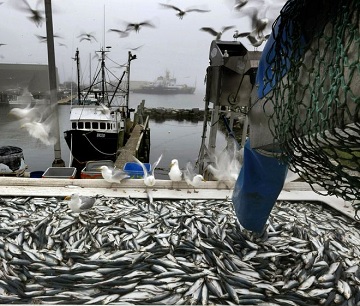
Forcing fishermen to pay for the privilege of being monitored
Imagine you live somewhere in small-town America where residents routinely exceed the posted speed limits. To address this problem, the town council votes to require a police officer to ride along with each member of the community every time they venture out in an automobile. You might think something like that could never happen. Yet that is precisely the position into which the Department of Commerce has placed the nation’s deep-sea fishermen. For more than 30 years, the Magnuson-Stevens Act has authorized the Commerce Department’s National Oceanic and Atmospheric Administration to require commercial fishing boats to carry observers with them to monitor their adherence to federal fishing regulations. When NOAA ran out of the money it needed to keep this program going to the extent it deemed necessary in the U.S. Atlantic Coast herring fisheries, the agency decided without congressional authorization to shift the responsibility of paying for these third-party observers to the fishermen themselves. >click to read< 14:54
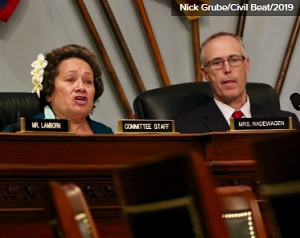
Sustaining America’s Fisheries for the Future Act – Partisan Politics Threaten to Sink Reform of Federal Fisheries Law
A divided Congress and the unexpected death of an Alaska congressman appear to have derailed federal legislation meant to improve oversight and management of U.S. fisheries, especially in the face of climate change. The House Natural Resources Committee passed a Democratic-sponsored bill last week to reauthorize the Magnuson-Stevens Fishery Conservation and Management Act for the first time since 2006. While it’s possible the bill will receive a vote on the House floor before the end of the year, its chances of being taken up in the Senate, much less receiving the 60 votes necessary to break a filibuster, is unlikely — at least in this Congress. >click to read< 11:42
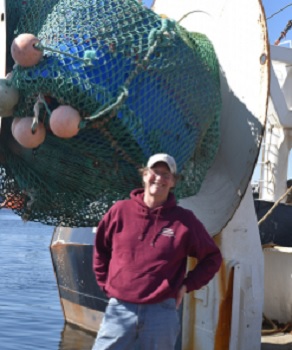
New England’s founding fish, may be returning to local waters
Atlantic cod, once a mainstay of the region’s economy, is being fished at historically low levels, but a research scientist whose past findings opened up a tightly regulated scallop fishery says cod may be staging a comeback. Before he heads out to sea, commercial fisherman Raymond Lees stops by Reidar’s Trawl Gear & Marine Supply in New Bedford to buy custom-designed fishing nets. The shape of the net, the width of its mouth and the size of its holes all help him target certain species of fish and, perhaps more importantly, avoid others. “I’ve spent so long running away from codfish that I’ve gotten better at running away from codfish,” Lees said during a recent run to Reidar’s. “I have specialized gear and I’m good at what I do.” “We went from a huge fishing business, as far as the groundfishing fleet’s concerned, of 300 boats down to 20 boats,” Bendiksen said. “It’s pretty much a 90 percent loss of what the fleet was.” >click to read< 08:10
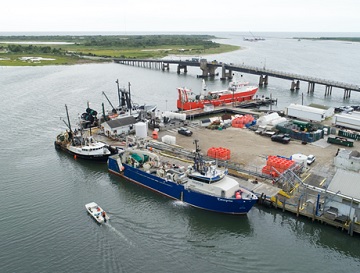
Mid-Water Herring Trawlers to Return to Inshore Waters – Court Overturns Exclusion Zone
Herring fishermen from New England and the Mid-Atlantic won a crucial decision last week when a federal judge in Boston ruled in their favor against an exclusion zone in Northeast U.S. waters. The court ruled that a National Marine Fisheries Service (NMFS) measure excluding the mid-water trawl fleet from productive inshore fishing grounds violated the Magnuson-Stevens Act, the nation’s premier fisheries law. The lawsuit was brought by the Sustainable Fisheries Coalition (SFC), a trade group representing herring and mackerel fishing companies. >click to read< 08:16
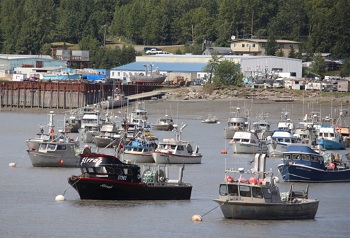
Kenai Peninsula Borough to ask feds for fishery disaster declaration
The Kenai Peninsula Borough Assembly voted Tuesday to ask the U.S. Secretary of Commerce to declare a sockeye salmon fisheries failure and economic disaster in the Upper Subdistrict of the Central District of Cook Inlet in response to a year that saw fewer and smaller fish, as well as lower-priced fish. >click to read< 07:55
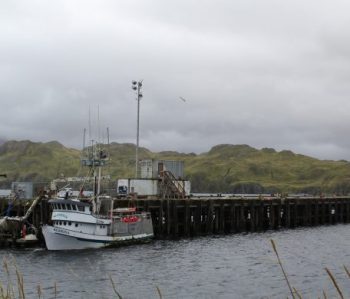
Amid a big fight for cod in the Bering Sea, can remote Adak survive?
A heap of slimy fish heads nearly filled a deep tote. Above, workers finished sorting stacks of decapitated halibut they had run through a grim mechanical apparatus. “Right here we have a guillotine blade,” said Mike Lauer, showing off the de-heading device. “We’ll sell the cheeks, and then we can use the heads for bait,” he added. Lauer is in charge of quality control for Golden Harvest, a processing plant on Adak that’s at the center of a fish war in the Bering Sea pitting two small Aleutian Island communities against large out of state fishing interests. And the implications of that fight could stretch to other coastal fishing towns in Alaska. >click to read< 21:08
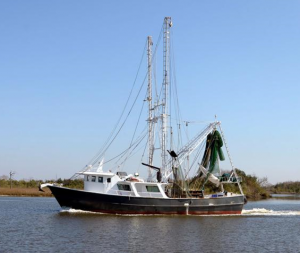
U.S. Sen. Kennedy calls for permanent safety net for fishing industry
U.S. Sen. John Kennedy, a Louisiana Republican, is calling for a permanent taxpayer-supported safety net for the fishing industry. The Commercial Fishing and Aquaculture Protection Act of 2019, introduced by U.S. Sen. Cindy Hyde-Smith, R-Mississippi, does not carry an explicit price tag. Kennedy’s statement in support of the bill compares the proposal to the U.S. Department of Agriculture’s “well-established” disaster programs for farmers.,,, Under the proposed amendment to the Magnuson-Stevens Act, potential federal relief would be available when revenue associated with commercial fishing or farm-raised fish production,,, >click to read<17:40
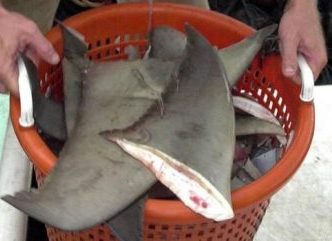
Reintroduced Shark Trade Bill Promotes Successful U.S. Conservation Policies at Policies at Global Level
The Sustainable Shark Fisheries and Trade Act of 2019 – A bipartisan bill introduced in the U.S. House advances global shark conservation by ensuring that all shark and ray products imported into the United States meet the same high ethical and sustainability standards required of American fishermen. The bill has broad support from conservation groups, zoos, aquariums and the fishing industry. >click to read<13:14
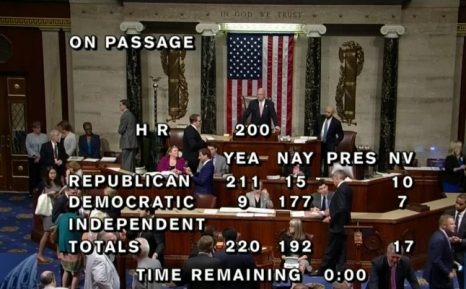
Opinion: Fisheries act is a chance to build trust
There’s a little something for everyone to hate in the House’s proposed renewal of the Magnuson-Stevens Act. Commercial fishermen feel it gives too much to recreational fishermen and environmentalists. Recreational fishermen say it goes too easy on their commercial counterparts, and the environmental lobby says the measure, which passed the House last week along largely partisan lines, will undo years of progress in restoring fish stocks. We are left with what we have had for decades — a pitched battle among competing interests, with no end in sight. Congress must do better to help guarantee that the science behind management decisions is sound and easily understandable. >click to read<19:25

The MSA and Don Young’s partisan dilemma
“We must remain committed to the bipartisan, bicameral tradition of fisheries management,” Rep. Don Young wrote last Sunday, “and my legislation accomplishes just that.” He was referring to the reauthorization of Magnuson-Stevens Act. But when the House passed it on Wednesday, only nine Democrats voted in favor of it. Which explains why, in the same opinion piece, Young complained about “the hyper-partisan mentality” his “Democratic colleagues subscribe to.” Like the breakup of a marriage, there are two sides to this story. The reason why Young is arguing from both might be that he was caught in the middle. >click to read<09:00
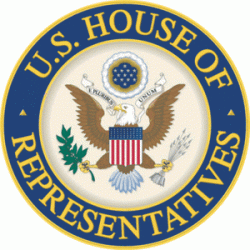
U.S. House set to vote on key fisheries bill, HR-200, Tuesday
It’s called the Strengthening Fishing Communities and Increasing Flexibility in Fisheries Management Act, or H.R. 200. It’s also referred to as the Modern Fish Act. Its author, Rep. Don Young, says the bill would update and improve the Magnuson Stevens Act, the primary law that guides federal fisheries regulators. “Reauthorizing the MSA will ensure a proper balance between the biological needs of fish stocks and the economic needs of fishermen and coastal communities,” Young said after the House Natural Resources Committee approved his bill in December. “MSA has not been reauthorized since 2006. It is long past time for this Congress to act and support our nation’s fisheries.” >click to read< Read the HR-200 Bill->click here< 08:39
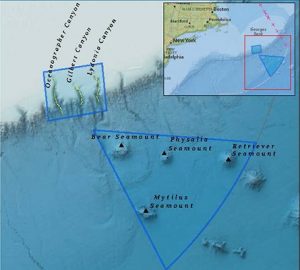
If courts are ever going to strike down an illegal national monument, this’ll be it
Often, it seems the federal government has it out for the English language. The President and federal agencies routinely twist the words in statutes beyond recognition. For instance, PLF has long challenged EPA’s bizarre claim that dry land is “water” under the Clean Water Act. The government’s no fan of consistency, so it should come as little surprise that the President also claims the ocean is “land” when that suits his purposes. In Massachusetts Lobstermen’s Association, et al. v. Ross, PLF is challenging the designation of 5,000 square miles of ocean as the Northeast Canyons and Seamounts Marine National Monument, under a statute that expressly limits designations to “land owned or controlled by the Federal Government.” The government has moved to dismiss that case arguing that the President can essentially do whatever he wants, the language of the statute be damned. Today, we filed our response to that motion. In our brief we explain that: Pacific Legal Foundation >click to read<21:52
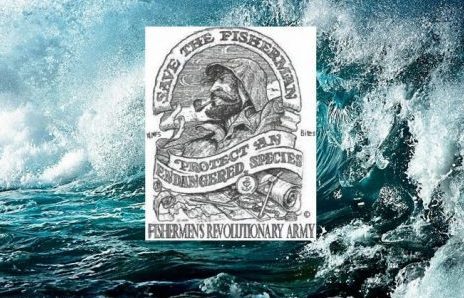
Nil’s Stolpe writes, The Magnuson-Stevens amendment I want under the Christmas tree
OVERFISHING! This has become one of the oceans branch of the doom and gloom prognisticator’s (aka Environmental Non Governmental Organizations or ENGOs) principal calls for alms. To wit, they have collectively raked in hundreds of millions of dollars from big business-supported foundations and trusting members of the public to persecute (generally commercial) fishermen who they preach are the cause of “overfishing,” the major threat to the sanctity of the oceans. (I’ll note here that the Pew “Charitable” Trusts was the multibillion dollar foundation that initiated the war on fishermen.) This purposeful misuse of the term “overfishing” has been one of the most subtle and most effective weapons in the anti-fishing activists’ arsenal. Nils Stolpe FishNetUSA >click to read< 18:00
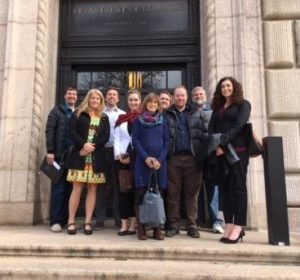
Alaska Fishing Delegation Heads To Washington
Representatives of the Alaska Longline Fishermen’s Association and the Alaska Marine Conservation Council– both members of the nationalFishing Communities Coalition (FCC) – were in Washington, DC, this week urging lawmakers to resist shortsighted efforts to weaken fishing communities by undermining key Magnuson-Stevens Act accountability provisions.,,, “The MSA is working in Alaska and around the country because all sectors adhere to scientifically-sound annual catch limits. >click to read<09:54

Scare-mongering Big Brother on America’s fishing boats hurts those who know the industry best
The plague on the commercial fishing industry isn’t “overfishing,” as environmental extremists and government officials claim. The real threats to Northeastern groundfishermen are self-perpetuating bureaucrats, armed with outdated junk science, who’ve manufactured a crisis that endangers a way of life older than the colonies themselves. Hardworking crews and captains have the deepest stake in responsible fisheries management — it’s their past, present, and future — but federal paper-pushers monitor them ruthlessly like registered sex offenders. >click here to read<09:47
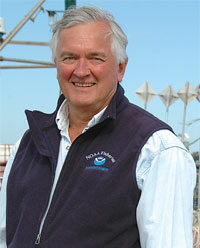
John Bullard: SectorIX board’s failure to act stopped its fishing
For New Englanders, Atlantic cod is not just another fish. The Sacred Cod that hangs in the Massachusetts State House is a testament to the cod’s place in our culture and history. For centuries, we fished for cod, as we watched the stock decline, we tried various ways to protect the resource this is considered as much a birthright as a commodity. In 2009, the New England Fishery Management Council under the Magnuson-Stevens Act, agreed to try a system called “catch shares” which worked well on the West Coast. click here to read the op-ed 20:52 
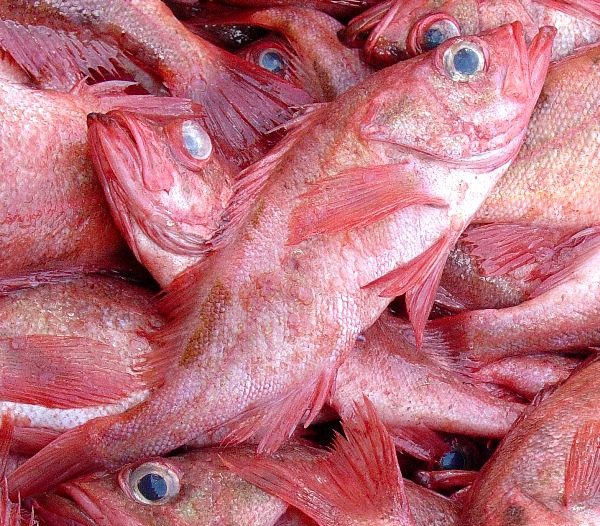
Ocean perch stock rebuilt, could lead to more commercial fishing opportunities in 2019
Federal restrictions designed to protect Pacific ocean perch from overfishing have worked well enough for the Pacific Fishery Management Council to consider the fishery “rebuilt,” meaning it will relax restrictions. Once the new rules take effect in 2019 it should have significant economic value to the coast, experts say. “It’s a big deal for fisheries along the coast,” said Phil Anderson, who works with Ocean Gold Seafood in Westport and serves as chairman of the Pacific Fishery Management Council. click here to read the story 09:47
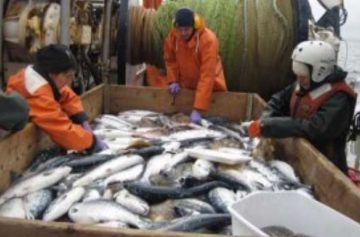
Money fish rule
Once more trawlers in the Bering Sea have gone to court in an effort to stop the National Marine Fisheries Service (NMFS) from billing them for the costs of managing Chinook salmon in the Bering Sea.,,, U.S. Commerce Department “cost recovery regulations, as applied to catcher-processor sector participants violate the (Magnuson-Stevens Act) MSA and (Administrative Procedures Act) APA, are arbitrary, capricious, an abuse of discretion and not in accordance with law, and are in excess of statutory jurisdiction, authority or limitations and short of statutory right,” the trawlers charged in a lawsuit filed Tuesday in the U.S. District Court for Alaska. click here to read the story 08:25
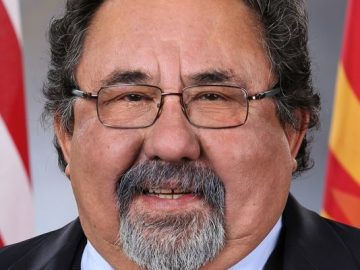
Full Committee Markup on 15 Bills – Magnuson Stevens HR 200 Advances, But Not Without a Fight
House Natural Resources Committee on Wednesday advanced out of committee revisions to the Magnuson-Stevens Act (H.R. 200 (115)) governing marine fishing and management in federal waters. The law is intended to prevent overfishing, but several conservation groups and Democrats are critical of the way it was written. Only three out of 12 amendments to the bill passed, and the bill moved out of committee on a party-line vote, your host reports. Rep. Raúl Grijalva (D-Ariz.), who voted against it, called it a plan to “deregulate our oceans and fish everywhere until there’s nothing left.” click here to read the story Watch the hearing click here 15:30
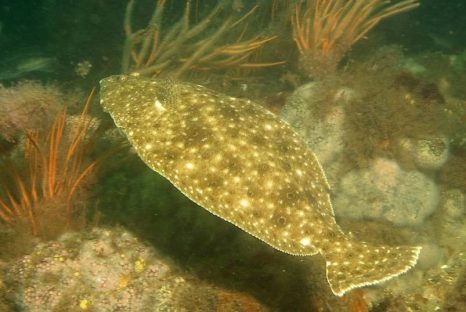
Floundering with the Fishcrats
Right now just three miles from Long Island’s beaches boats are dragging fluke, or “summer flounder”, as is their official title. These boats are from several regional states, among them New York. Most are fishing under Southern state “flags”, as it were, as these states have the biggest quota shares and therefore the biggest daily limits. Each boat will have to steam to a port in the state of the landing permit it is working under to off load and sell the catch. This fishing here has been going on this way for many decades, but it hasn’t been until recent years that boats had to sail the flatfish hundreds of miles to sell them. Bringing them within New York’s boundaries constitutes a serious violation of New York State Department of Environmental Conservation Law, with potential felony convictions with huge fines, loss of license and vessel, and jail time. click here to read the story 09:02
Trade groups want 10-year requirement removed from Magnuson-Stevens Act
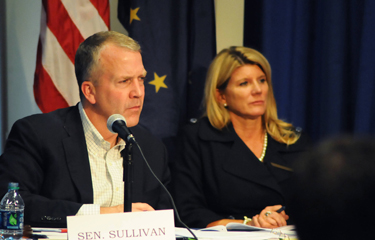 As Congress gets ready to address reauthorizing the Magnuson-Stevens Act, representatives from commercial fishing interests are urging lawmakers to revisit some of the current law’s regulations they feel have hindered the industry. In particular, they’re urging officials to do away with language that caps rebuilding plans for overfished species to 10 years. It’s an arbitrary figure that has too rigidly applied across all federally managed species, said Lori Steele, the executive director of the West Coast Seafood Processors Association, at a hearing Tuesday of the Senate Committee on Commerce, Science and Transportation’s Subcommittee on Oceans, Atmosphere, Fisheries and Coast Guard. click here to read the story 10:50
As Congress gets ready to address reauthorizing the Magnuson-Stevens Act, representatives from commercial fishing interests are urging lawmakers to revisit some of the current law’s regulations they feel have hindered the industry. In particular, they’re urging officials to do away with language that caps rebuilding plans for overfished species to 10 years. It’s an arbitrary figure that has too rigidly applied across all federally managed species, said Lori Steele, the executive director of the West Coast Seafood Processors Association, at a hearing Tuesday of the Senate Committee on Commerce, Science and Transportation’s Subcommittee on Oceans, Atmosphere, Fisheries and Coast Guard. click here to read the story 10:50
The Magnuson Stevens Act and its Ten Year Rebuilding Timeline: Science or Fiction? By Meghan Lapp – click here to read the article






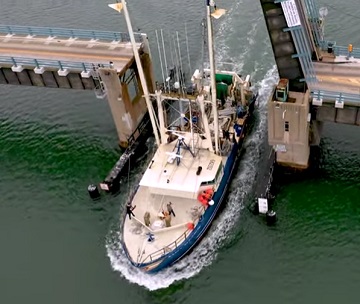



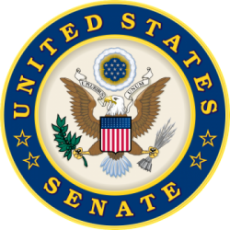




























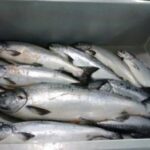


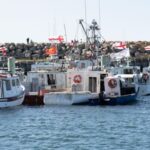


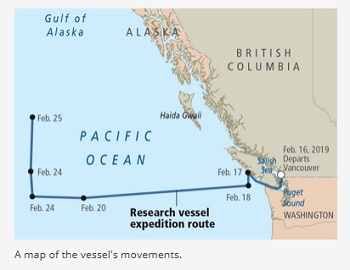




Fishermen fear Hudson Canyon sanctuary will mean more restrictions
The canyon is a prolific fishing ground that starts about 90 miles offshore from Manasquan Inlet and is in the crosshairs of a public debate over the sanctuary designation, which would give NOAA more leverage managing the resources of the largest submarine canyon off the Atlantic Coast. Commercial vessels fish for tunas, squid and lobster, while the state’s recreational fishing fleet of for-hire vessels continually run anglers out to the canyon to catch fresh tuna and tilefish. “We’re probably the greatest and strictest fishery management country in the world. Why do we need this extra layer on top of everything we have now?” said Jason Bahr, a seafood wholesaler and vice president of Blue Water Fisherman’s Association, a trade group of commercial longline fishermen who fish for pelagic species such as tuna and swordfish in the Hudson Canyon. >click to read< 07:50
Share this post